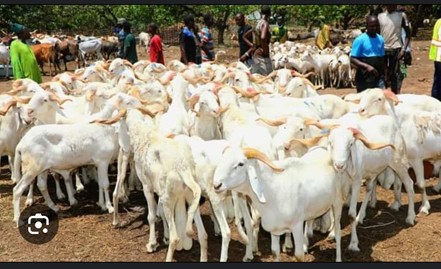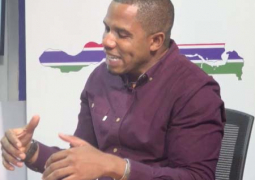
The traditional excitement and anticipation are being replaced by anxiety and frustration for many Gambian households. The price of rams, an essential part of the religious celebration has risen dramatically, and both livestock traders and consumers are pointing to one culprit: the plummeting value of the Dalasi against the CFA.
Matarr Bittaye, a seasoned livestock trader who imports rams from neighbouring Senegal, described this year as one of the most challenging in his career. “The exchange rate has become unbearable,” he told The Point. “Last year we were buying at D555, and now it has risen to D625. That difference affects everything from how many rams we can bring in and to how much we can charge customers.”
According to Bittaye, the weakened Dalasi is not only reducing the quality and quantity of rams being imported but also reshaping buyer behaviour. “People are hesitant. They come to the market, they ask about prices, and then they walk away,” he explained. “The prices are simply out of reach for the average Gambian.”
Muhammed Sillah, another prominent ram dealer who both imports and raises local livestock, echoed similar sentiments. “This year is the hardest we’ve seen in a long while,” he said. “Everything has gone up feeding, transportation, border fees, and most importantly, the CFA. The exchange rate is making it unsustainable.”
Sillah highlighted the need for increased investment in local ram production as a more viable long-term solution. “If we put more effort into domestic breeding, we can reduce our reliance on imports and stabilize prices,” he suggested. “But for now, we’re stuck in a cycle where every year gets harder for both traders and the public.”
He also urged fellow traders to be mindful of the tough economic climate when setting prices. “We understand the business side, but we can’t ignore the realities of ordinary people,” he said. “This is a time of religious importance. Profit should not overshadow people’s ability to observe their faith.”
While traders face economic uncertainty, consumers are also grappling with difficult choices. Ousman Manneh, a father from Bundung, voiced his concern about the affordability of rams. “Every year, my family and I look forward to Tobaski, but this year, the prices are just too much,” he said. “We’re talking about D20,000 to D30,000 for a decent-sized ram. It’s unrealistic.”
Manneh explained that for many families, purchasing a ram is more than a religious obligation. It’s a moment of togetherness, sharing, and spiritual fulfillment. “Not being able to afford a ram is heartbreaking, especially for the children who don’t understand why things are different this year,” he lamented.
He urged the government and development partners to take proactive steps in addressing the recurring issue.
Musa Drammeh a buyer stated that the issue is compounded by The Gambia’s heavy dependence on livestock imports from Senegal, Mali, and Mauritania that use the CFA franc. This he said makes the local market highly sensitive to fluctuations in the exchange rate.
Omar Sonko, a father of six from Tanji, also shared his frustration. “I’ve been going around the markets, and the prices are shocking,” he said. “Normally, by now, I would have already bought a ram. This year, it’s nearly impossible.”
Read Other Articles In Headlines

Darboe challenges gov’t to provide sea ambulance to save lives in NBR
Dec 9, 2024, 10:54 AM




